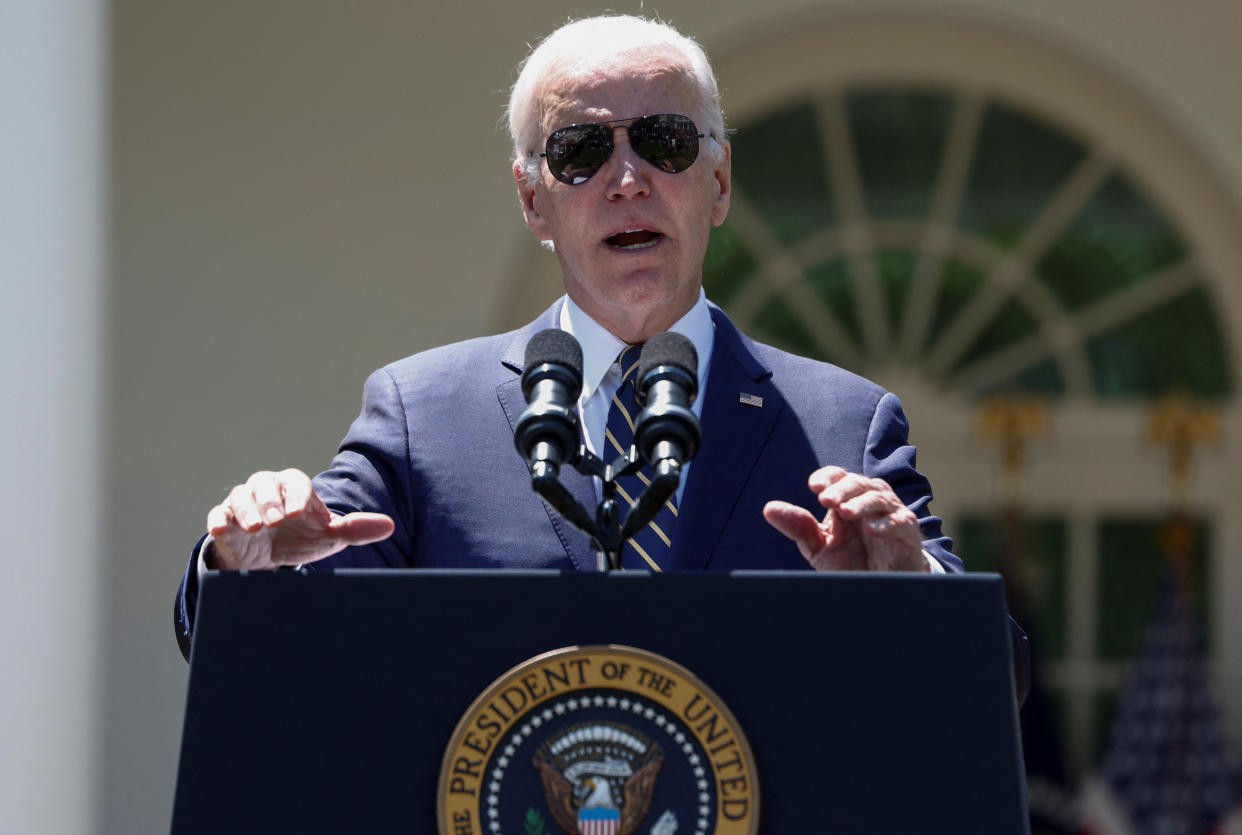This week in Bidenomics: The summer of freedom may finally be here
Two years ago, President Biden declared a “summer of freedom” had arrived, thanks to Covid vaccines that finally allowed Americans to leave home with a sense of protection. Then the Delta variant metastasized and Americans got spooked all over again. Biden endured mockery for his premature declaration, especially as the Covid death toll spiked again in the fall and winter.
Then there was the summer of 2022. It kicked off with gas prices cracking $5 per gallon and year-over-year inflation hitting 8.9%, the highest in 42 years. Even the sunny Biden knew better than trying to convince gloomy Americans that happy times were here again.
Heading into the summer of 2023, politicians in Washington, DC are threatening a pointless default on US debt, as Republicans and Democrats bicker over federal spending and each side tries to prove they’re the least loathsome political party. Americans rightfully feel disgusted. Yet most aren’t paying attention, despite the breathless media coverage. Instead, they’re tanking up for road trips and booking a record number of flights. Travel experts warn of record-breaking crowds.
If Congress blows it and triggers a US default, it will be a miserable summer, with soaring interest rates, rising unemployment and a plunging stock market. But America’s childish political antics have never gone quite that far, and the most likely outcome is a last-minute deal to raise the federal borrowing limit, with Congressional arsonists congratulating themselves on putting out the fire before the whole house burns down.
Once that happens, the rest of the summer might feel like a genuine return to pre-Covid living. Gasoline prices average around $3.60 per gallon, nearly 30% below the 2022 peak. Inflation is still elevated, at 4.9%, but it’s been coming down steadily and economists expect that to continue. As for Covid, it’s still there—but the public health emergency that began in 2020 ended last month. The vast majority of Americans are either vaccinated or immunized from a bout with the virus (or both).
[Drop Rick Newman a note, follow him on Twitter, or sign up for his newsletter.]
For all the worries about a recession caused by inflation, rising interest rates, bank failures, Russia’s war in Ukraine, or some economic bogeyman, there’s still no sign of it. Consumer spending in April rose by more than expected, according to data released May 26. It wasn’t a blockbuster gain, but the kind of modest increase that might be sustainable.

“Where’s this recession widely expected to come any time now?” economist Ed Yardeni of Yardeni Research mused in a May 26 note to clients. “Why haven’t high inflation and monetary tightening ground economic activity to a halt yet? Because a recession isn’t coming anytime soon.” Yardeni puts the odds of a “soft landing”—a drop in inflation without a meaningful rise in unemployment—at 70%. His odds of a “hard landing,” in which overly aggressive rate hikes by the Federal Reserve cause a recession, are just 30%.
Mark Zandi, chief economist at Moody’s Analytics, wrote on May 23, “the unprecedented pessimism regarding the economy’s prospects appears increasingly overdone.” He predicts that in a year or so, inflation will be back near the Fed’s target of 2% or so.
The political realm, of course, remains filled with despair. When Florida Gov. Ron DeSantis launched his campaign this week for the Republican presidential nomination, he argued that the nation needs “a great American comeback.” He griped about high energy prices and dinged Biden for inflation that’s “pricing hardworking Americans out of a good standard of living.”
A year ago, it certainly felt like inflation was wrecking family budgets. This year, the pressure is easing. What about next year, when voters are starting to make up their minds about the 2024 elections? By then, more renters will benefit from moderating housing costs. Car prices will likely stabilize thanks to new supply. Food costs may be back to normal.
If Biden learned the lesson from two summers ago, he won’t be telling Americans how great everything is this year. Better to stay subtly optimistic and occasionally accentuate the positive. But Americans can enjoy themselves without the president’s urging, and it might be time to do exactly that.
Rick Newman is a senior columnist for Yahoo Finance. Follow him on Twitter at @rickjnewman
Click here for politics news related to business and money
Read the latest financial and business news from Yahoo Finance
